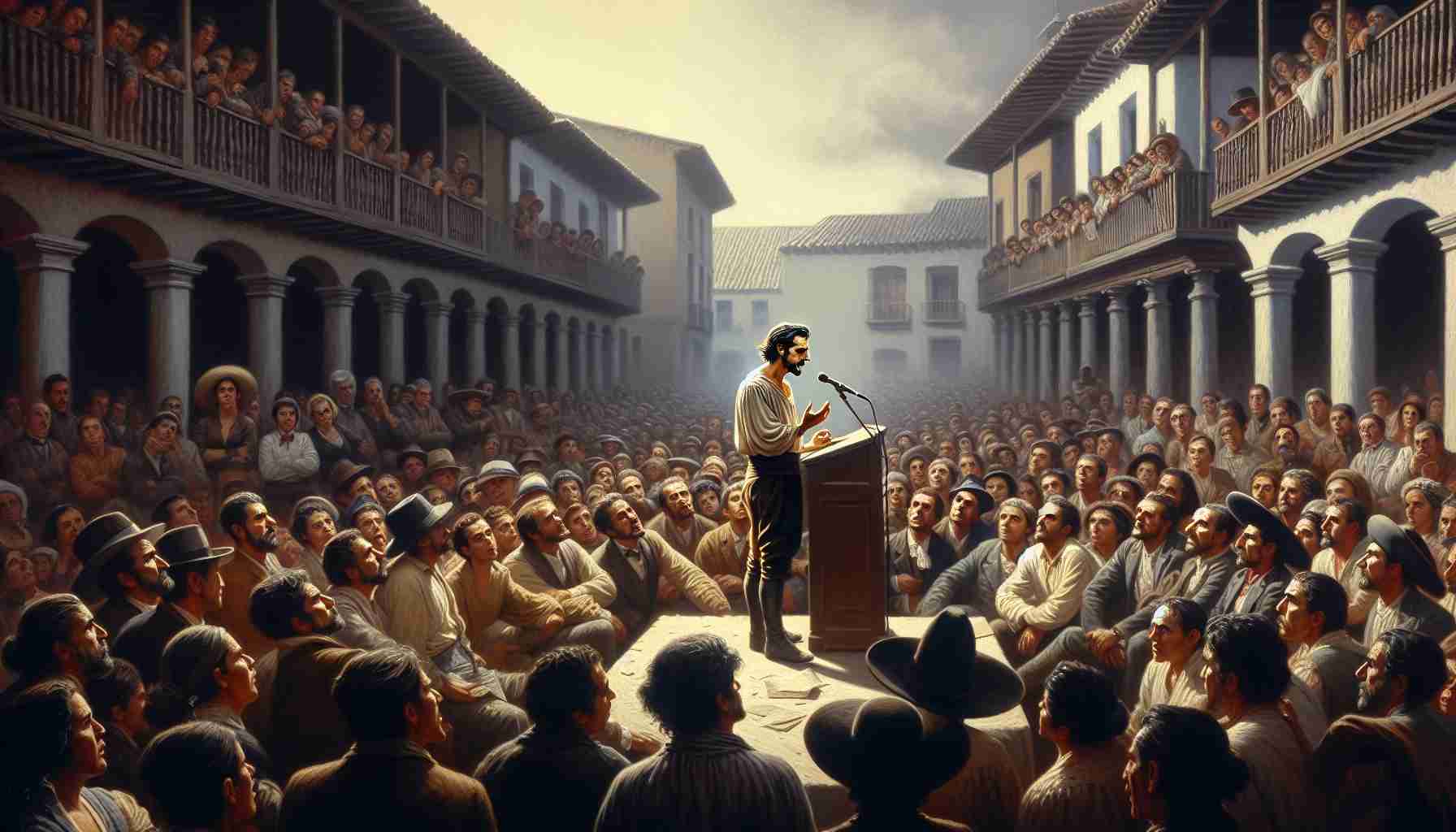- María Luisa Gutiérrez dedicated her film’s success to heroes fighting for democracy.
- Her film, La Infiltrada, highlights the experiences of a police officer within the ETA terrorist group.
- The acceptance speech emphasized that terrorism is beyond political affiliations and advocates for freedom of expression.
- The film serves as a reminder of the importance of remembering and learning from history.
- It marks a cultural milestone as the first Basque production to win a Goya Award.
- La Infiltrada calls for heightened awareness and respect for victims of violence.
In a gripping moment at the Goya Awards, María Luisa Gutiérrez seized the spotlight, fervently dedicating her film’s triumph to the heroes who risk their lives for democracy. Her film, La Infiltrada, recounts the harrowing tale of a police officer infiltrating the infamous ETA terrorist organization, captivating audiences and sparking crucial discussions.
Gutiérrez, full of passion, made her stance crystal clear during her acceptance speech, asserting that her message transcended politics. She honored not just the bravery of the undercover agents but also the enduring legacy of victims like the Ordóñez family, whose heart-wrenching story is portrayed in the film. Her words emphasized that terrorism knows no political boundaries, and freedom of expression is a universal right that requires safeguarding.
What made her message resonate deeply? It wasn’t merely about accolades; it was a powerful appeal to collective memory and the responsibility of acknowledging our past, reminding younger audiences of a history they might not fully grasp. The film’s success is underscored by a wave of curiosity among youth, shining a light on a darker chapter of Spain’s history that remains relevant today.
This stirring moment was not just a win for cinema but a significant cultural milestone, marking the first Basque production to secure a Goya. As Gutiérrez noted, it’s time to unite behind the victims and reflect on the real narratives that shape our society.
In the end, La Infiltrada isn’t just a film; it’s a clarion call for awareness, remembrance, and respect in a fragmented world.
Unmasking the Shadows: La Infiltrada Ignites a Legacy of Remembrance
Goya Awards and La Infiltrada: A Cultural Milestone
In a powerful acceptance speech at the Goya Awards, María Luisa Gutiérrez dedicated her film La Infiltrada to the heroes who protect democracy. This significant moment emphasizes not only the film’s narrative but also its historical importance as it delves into the story of a police officer infiltrating the notorious ETA terrorist organization. Gutiérrez’s passion resonated with audiences, encouraging discussions about terrorism and freedom of expression.
Notable Insights on La Infiltrada
1. Cultural Impact: As the first Basque production to win a Goya, La Infiltrada marks a historic achievement in the Spanish film industry, symbolizing a shift towards recognizing regional narratives and contributions.
2. Target Audience and Engagement: The film has sparked curiosity among younger audiences, bridging generational gaps and encouraging a deeper understanding of Spain’s tumultuous history with ETA and the effects of terrorism on society.
3. Social Responsibility: Gutiérrez highlighted the necessity of remembering and acknowledging past atrocities, arguing that collective memory shaping is essential for the youth to comprehend the impact of history on present-day society.
Essential Questions About La Infiltrada
1. What is the significance of honoring victims in storytelling?
– Honoring victims in narratives like La Infiltrada serves as a reminder of the human cost of violence, promoting empathy and a greater understanding of historical injustices. By humanizing these experiences, filmmakers like Gutiérrez aim to connect the past with the present, urging society to learn from its history.
2. How does La Infiltrada address the theme of freedom of expression?
– The film addresses freedom of expression by shedding light on the complexities surrounding terrorism and the right to safety. Gutiérrez’s speech emphasizes that protecting this freedom is vital, despite political affiliations, and that storytelling can be a powerful means of advocating for such rights.
3. In what ways can La Infiltrada contribute to contemporary dialogues about terrorism?
– La Infiltrada can serve as a catalyst for contemporary discussions about the ramifications of terrorism in modern society. By reflecting on past events, the film encourages audiences to confront existing issues connected to violence, extremism, and the importance of unity in advocating for peace and democratic ideals.
Additional Features of La Infiltrada
– Use Cases: Ideal for educational purposes, the film can be utilized in discussions about history, ethics, and the effects of terrorism.
– Innovations: Gutiérrez employs a raw and emotive cinematic style that draws viewers into the emotional core of the story, making it a significant artistic achievement.
– Market Trends: The success of La Infiltrada might indicate a rising interest in films dealing with complex historical and political themes within Spanish cinema.
For more insights and updates, visit Film In Focus.
